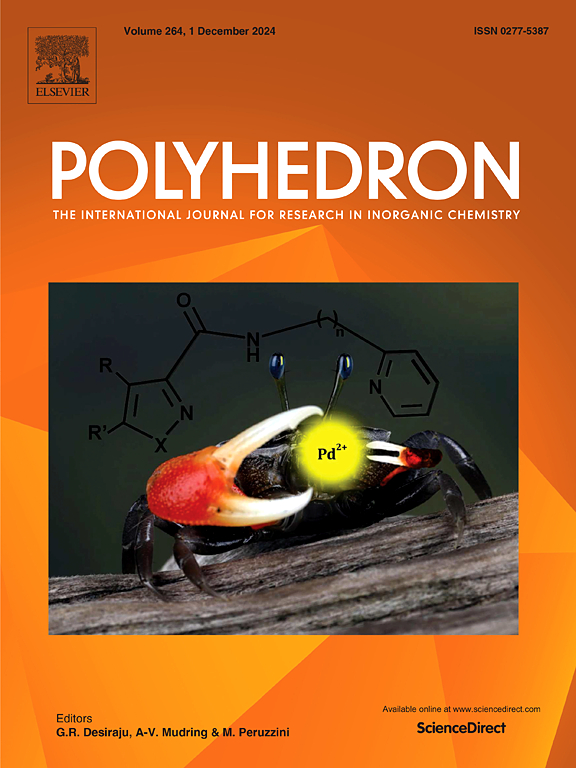Bismuth and transition metal complexes as potent anti-Helicobacter pylori agents: A review
IF 2.4
3区 化学
Q2 CHEMISTRY, INORGANIC & NUCLEAR
引用次数: 0
Abstract
Helicobacter pylori (Hp) belongs to the genus spirillobacter and generally colonizes the human stomach, frequently causing the various gastric diseases. The conventional antibiotics are often applied for the treatment of Hp infection, but their overuses prompting Hp to form a biofilm will reduce its susceptibility to antibiotics, thus resulting in antibiotic resistance to severely affect the therapy of Hp infection. Interestingly, the eradication rate of Hp increases when antibiotics are combined with bismuth complex-based agents that include colloidal bismuth subcitrate (CBS), bismuth subsalicylate (BSS) and ranitidine bismuth citrate (RBS), due to the synergistic activity of antibiotics and bismuth complexes, while no reports of resistance to bismuth complexes until now, so it is reasonable to select bismuth complex as an indispensable part of first-line therapy. As a result, the trivalent bismuth has been applied for the preparation of various bismuth complexes with efficient anti-Hp activities, appealing as the anti-Hp agents with low toxicity. Subsequently, some transition metal complexes with the better anti-Hp activities are also designed and synthesized. We believe that the development of new bismuth and transition metal complexes as anti-Hp agents may be a promising approach to increase the eradication rate of Hp infection. This review summarizes the most striking advances in the syntheses, crystal structures, and anti-Hp activities of bismuth and transition metal complexes, which attempt to not only reveal a correlation between their structural features and anti-Hp activities, but also offer the helpful guidance for the researchers in the future development of new bismuth and other important bio-metal complexes as the efficient anti-Hp agents.

求助全文
约1分钟内获得全文
求助全文
来源期刊

Polyhedron
化学-晶体学
CiteScore
4.90
自引率
7.70%
发文量
515
审稿时长
2 months
期刊介绍:
Polyhedron publishes original, fundamental, experimental and theoretical work of the highest quality in all the major areas of inorganic chemistry. This includes synthetic chemistry, coordination chemistry, organometallic chemistry, bioinorganic chemistry, and solid-state and materials chemistry.
Papers should be significant pieces of work, and all new compounds must be appropriately characterized. The inclusion of single-crystal X-ray structural data is strongly encouraged, but papers reporting only the X-ray structure determination of a single compound will usually not be considered. Papers on solid-state or materials chemistry will be expected to have a significant molecular chemistry component (such as the synthesis and characterization of the molecular precursors and/or a systematic study of the use of different precursors or reaction conditions) or demonstrate a cutting-edge application (for example inorganic materials for energy applications). Papers dealing only with stability constants are not considered.
 求助内容:
求助内容: 应助结果提醒方式:
应助结果提醒方式:


